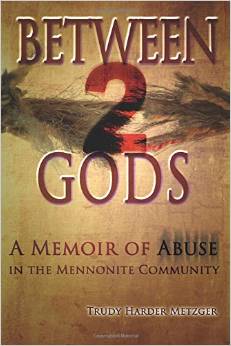*The following is part of the Patheos book club for Sacrilege. To get more info about this book, go here.
Hugh Halter has written a book that resonates with me on two levels. The first, he writes as a church planter who has modeled and dreamed about ways in which the modern church can do mission in the 21st-century in a more effective manner. As one who is preparing to church plant in about a years time, this book hit me at a deep level.
Second, Halter writes a book that invites Christ-followers to rethink the areas of baggage that hold us back from living into the mission of Jesus in the world. From the front end, let me say, that I highly recommend Hugh Halter’s new book “Sacrilege: finding life in the Unorthodox ways of Jesus.”
From the introduction of the book, I was hooked. He tells a story about visiting Jerusalem and the conflicted emotions that occurred within him as he pondered the Jesus of the first century versus the evidence (or lack thereof) of Jesus in Jerusalem today. Sure, there are churches and shrines and monuments of Christianity in various forms, but none of these get to the heart of the Rabbinic teacher who came to deconstruct religion as it was known in that day.
There were so many nuggets of insight that I won’t be able to cover, so I’ll just give you a couple that I think you ought to be excited about. First, Halter argues that we are to forget the word discipleship and replace it with apprenticeship. This is not because he thinks the word in itself is bad, but that we’ve imposed a perspective of Bible memory and various other ideas about what it needs to be a disciple that are far removed from the revolutionary mission of God in Jesus Christ. As an apprentice, we first become like Jesus, second, do what Jesus did, and third, spend time with unorthodox people. In all these ways we become like our teacher… we do what he did.
“If apprenticeship means becoming like Jesus, we have quite a task before us. A lot of people have assumed they are suffering persecution from others because they are Christians. In truth, they’re suffering because they are obnoxious religious jerks (to put it nicely).” 51
Another section of the book that I really appreciate it has to do with “the problem with family values.” now before you get upset and worried that he thinks that we got not care about family and our household, exactly the opposite is true. However, he wants us to rethink what we mean by being focused on family values. Is it about having family time and becoming insulated or is it about becoming a household that practices radical hospitality? Here’s another great quote:
“In our town, just down the road from focus on the family, having abundant time alone with your family is considered the “godly” way to live. I have found it difficult to get these dear folks to engage the culture at large, be it leaving the pot roast and taters with uncle Earl to go hang out with some neighbors or new friends or initiating more than a two-sentence dialogue with others outside their most immediate (and usually blood related) circle.” 86-87
He adds a couple pages later:
“Jesus came to expand your life, not keep it the same. His life is fuller then the American dream, but it’s not as safe. The way of Jesus includes commitment to your family, but it also calls you to fling open the doors of your home to strangers, the broken-hearted, and the lonely. So what I am suggesting is this: cut out some of the nonstop activities and make room for a few more people in your family room.” 90
I feel like that quote is profound. If we as Christian families would embraced that paradigm shift, the movement of God’s kingdom amongst those two do not yet know Jesus would be incredible. May it be so in my family as we ponder our mission in the world!
There’s so many other examples of exciting nuggets in Hugh Halter’s book that I don’t have time to write about. The bottom line is this: if we want to follow Jesus we need to be willing to take the “sacred cows” of churchianity and destroy them. In this we find an unorthodox pattern of life that looks more like Jesus. I recommend this book to anyone willing to explore that possibility.












